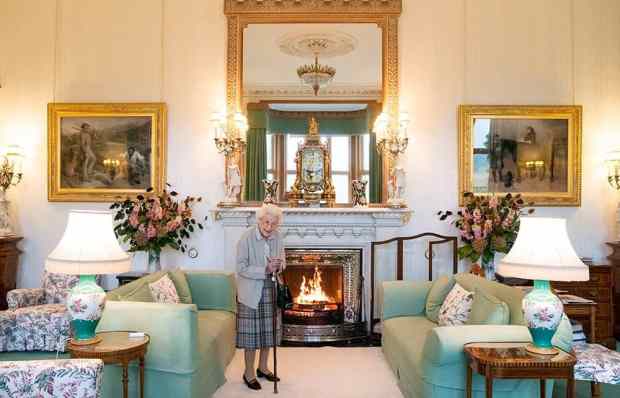That the Queen has lived to become our longest-reigning monarch — a milestone which she will mark quietly with a lunch next Wednesday — is in itself a sign of the golden age of prosperity which has been the second Elizabethan age. Over the 63 years of her reign, life expectancy for women has increased by a dozen years, to 83. The Queen may be remarkable for her age, but she is far from alone in modern Britain for having lived to a great age in good health. A team of 12 is now needed to send out royal telegrams congratulating those of her subjects to celebrate their 100th birthday.
To the increase in longevity over the past six decades can be added huge economic and social advancements. Almost all of it would, of course, have happened whoever was on the throne — and, as the Queen recognises, no matter who was in Downing Street. In a speech to the UN five years ago, she observed a truth that few politicians acknowledge: the greatest achievements are not guided by leaders, but by people being left alone to achieve what they can. ‘Remarkably, many of these sweeping advances have come about not because of governments, committee resolutions, or central directives — although all these have played a part — but instead because millions of people around the world have wanted them.’
The Queen’s own patriotism — a faith in the courage and character of her subjects — has informed her approach to her reign. She does not itch, as her eldest son sometimes does, to steer ministers one direction or another. Her approach has been one of service. Her daily schedule would alarm and exhaust someone half her age.
The most remarkable aspect of her reign is not its longevity, but its success. Britain has achieved something almost unprecedented in the history of human societies: the peaceful unwinding of an empire which, with a few exceptions, has been neither violent nor tragic. The Queen leads the Commonwealth with as much confidence as her great-great-grandmother ruled the empire; the difference being, of course, that membership of the Commonwealth is by choice and it is therefore an institution which is likely to be far longer lasting.
The Queen has succeeded in persuading former colonies to maintain an alliance with Britain because she is the world’s most accomplished diplomat. She is a tireless traveller and a meticulous observer of protocol. It is a tribute to her skill and carefulness that, even after being the centre of national life and appearing on a public platform in some form for almost every day for the past six decades, we still have next to no idea of her politics. We can guess, from her interests, that her private views are probably more aligned with those of the Countryside Alliance than the animal rights groups. Yet if she has political conversations in private, these have never leaked out.
Stability is one of the greatest arguments for monarchy, and one to which republicans tend to blind themselves. European countries from Portugal to Russia had miserable experiences after ditching their monarchies. Even the US, which can claim to be one of the world’s finest democracies, might benefit from having a non-political head of state. The partisanship which afflicts US institutions from the Supreme Court downwards is not something from which British national life suffers.
The hopelessness of the republican cause in Britain was underlined when, two decades ago, an opinion poll asked the public whom they would like to be their first president should Britain become a republic. The most popular choice — from a prepared list — was Princess Anne. The Queen was not offered as a choice, but doubtless she would have been chosen had she been an option. Those who try to belittle royal events, or play down public support for celebrations such as the Queen’s jubilees, are invariably confounded by the mass turnout.
That is the point about the reign of Elizabeth II. It is not just that the British public supports the monarchy by a very comfortable majority; they hold the Queen herself in huge affection — so much so that not even the Scottish Nationalists, who would happily untie everything else from the Act of Union, wish to remove the Queen as their head of state.
The British monarchy could easily have crumbled in 1936, or fallen with the empire, or been weakened by the marital scandals of the 1990s. That the crown has never been stronger is largely down to the strength of character of the Queen herself. She has preserved and strengthened the monarchy through humility and patriotism. The people whom she has served with such devotion have every reason to wish that the second Elizabethan age lasts many more years.
Got something to add? Join the discussion and comment below.
Get 10 issues for just $10
Subscribe to The Spectator Australia today for the next 10 magazine issues, plus full online access, for just $10.
You might disagree with half of it, but you’ll enjoy reading all of it. Try your first month for free, then just $2 a week for the remainder of your first year.













Comments
Don't miss out
Join the conversation with other Spectator Australia readers. Subscribe to leave a comment.
SUBSCRIBEAlready a subscriber? Log in